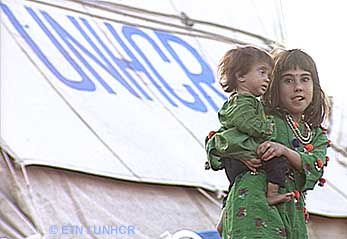The Obama administration has delivered new and stiff warnings to Pakistan after the failed Times Square car bombing that it must urgently move against the nexus of Islamic militancy in the country’s lawless tribal regions, American and Pakistani officials said.
The American military commander in Afghanistan, Gen. Stanley A. McChrystal, met with the Pakistani military chief, Gen. Ashfaq Parvez Kayani, at his headquarters here on Friday and urged Pakistan to move more quickly in beginning a military offensive against the Pakistani Taliban and Al Qaeda in North Waziristan, Americans and Pakistanis familiar with the visit said. The officials spoke on the condition of anonymity because of the delicacy of continuing diplomatic efforts here.
The Pakistani-American man who admitted to the Times Square attack, Faisal Shahzad, 30, told American investigators that he had received training in North Waziristan, the main base for the Pakistani Taliban, Al Qaeda and other militant groups.
The new pressure from Washington was characterized by both the Pakistani and American officials as a sharp turnaround from the relatively polite encouragement adopted by the Obama administration in recent months. And it comes amid increasing debate within the administration about how to expand the American military’s influence — and even a boots-on-the-ground presence — on Pakistani soil.
Though the bombing in Times Square failed, Mr. Shahzad’s ability to move back and forth between the United States and Pakistan has heightened fears in the Obama administration that another attempt at a terrorist attack could succeed.
“We are saying, ‘Sorry, if there is a successful attack, we will have to act’ ” within Pakistan, one of the American officials said.
That issue has been a source of growing tension between the countries. Pakistani officials, already alarmed by the increase in American drone aircraft attacks against militants in northwestern Pakistan, have been extremely sensitive about any hint that American ground troops could become involved in the fight. And attempts by the United States to increase the presence of Special Operations forces there even in an advisory or training role have been met with great resistance by the Pakistanis.
The Pakistani military has stepped up its campaigns against militants in the past year, including an offensive in South Waziristan that has been praised by American officials. It has said that it is preparing to take up the fight against militants in North Waziristan. But Pakistani officials have insisted that the expanded campaign will happen completely on their own terms, and they have warned the Obama administration not to push so hard that it uses up the good will it has tried to foster here.
But the Americans’ urgency has been increasing on multiple fronts. With an intensified American military campaign raging against the Taliban next door in Afghanistan, and now with the renewed evidence of Pakistani sources for plots to attack on American soil, it was clear the Pakistani government had to do more, and more urgently, a senior American official said Saturday.
General Kayani, with whom General McChrystal has forged a positive relationship, was essentially told, “ ‘You can’t pretend any longer that this is not going on,’ ” another American official said. “ ‘We are saying you have got to go into North Waziristan.’ ”
The American ambassador to Pakistan, Anne Patterson, met Pakistan’s president, Asif Ali Zardari, after the failed bombing and used “forceful” language to convey the American point that the Pakistanis had to move more assertively against the militants threaded through the society, a Pakistani official said.
“The element of threat is definitely different from the last few months,” said Tariq Fatemi, a former Pakistani ambassador who also served in the United States. .
The Obama administration was planning to use the failed terrorist attack to impress on the Pakistanis of the urgency of getting American development aid in place in the tribal areas where militancy thrives, and into Karachi, the biggest city, where radical religious schools, known as madrasas, are popular.
“Last week’s incident makes it more urgent and more true” of the need to bring stability and security to these areas where the militants have multiplied, an American official said.
About $150 million was appropriated by Congress for assistance to the tribal areas in the coming period for reconstruction and other projects. But a host of problems, including American insistence on being able to monitor the money being spent, has made it a slow process.
Since Mr. Shahzad’s arrest in the Times Square attack, each country has, to some extent, blamed the other. Many Pakistanis insist that Mr. Shahzad is an American citizen who was radicalized in the United States by the difficulties he found living there as a Muslim. The Americans stress that Mr. Shahzad has traveled more than a dozen times back to Pakistan from the United States since 1999, and appeared to have received his military training in the epicenter of militancy, North Waziristan.
Mr. Shahzad’s background as the son of a senior Pakistani military officer has embarrassed the Pakistani Army, the most powerful institution in the country, and which receives generous financing from the United States. Mr. Shahzad’s father was a vice marshal in the Pakistani Air Force, and it appears that Mr. Shahzad grew up around senior military officers.
After Mr. Shahzad told American investigators that he was trained in bomb making in North Waziristan, the Pakistani Army tried to play down that claim, portraying it as unlikely.
The Pakistani Taliban took initial responsibility for the bombing attempt. Days later, though, their spokesman denied any involvement, a statement that may have been prompted by fears that their early claim of ownership of Mr. Shahzad might result in a direct attack on the North Waziristan enclave by the Americans, or the Pakistanis.






